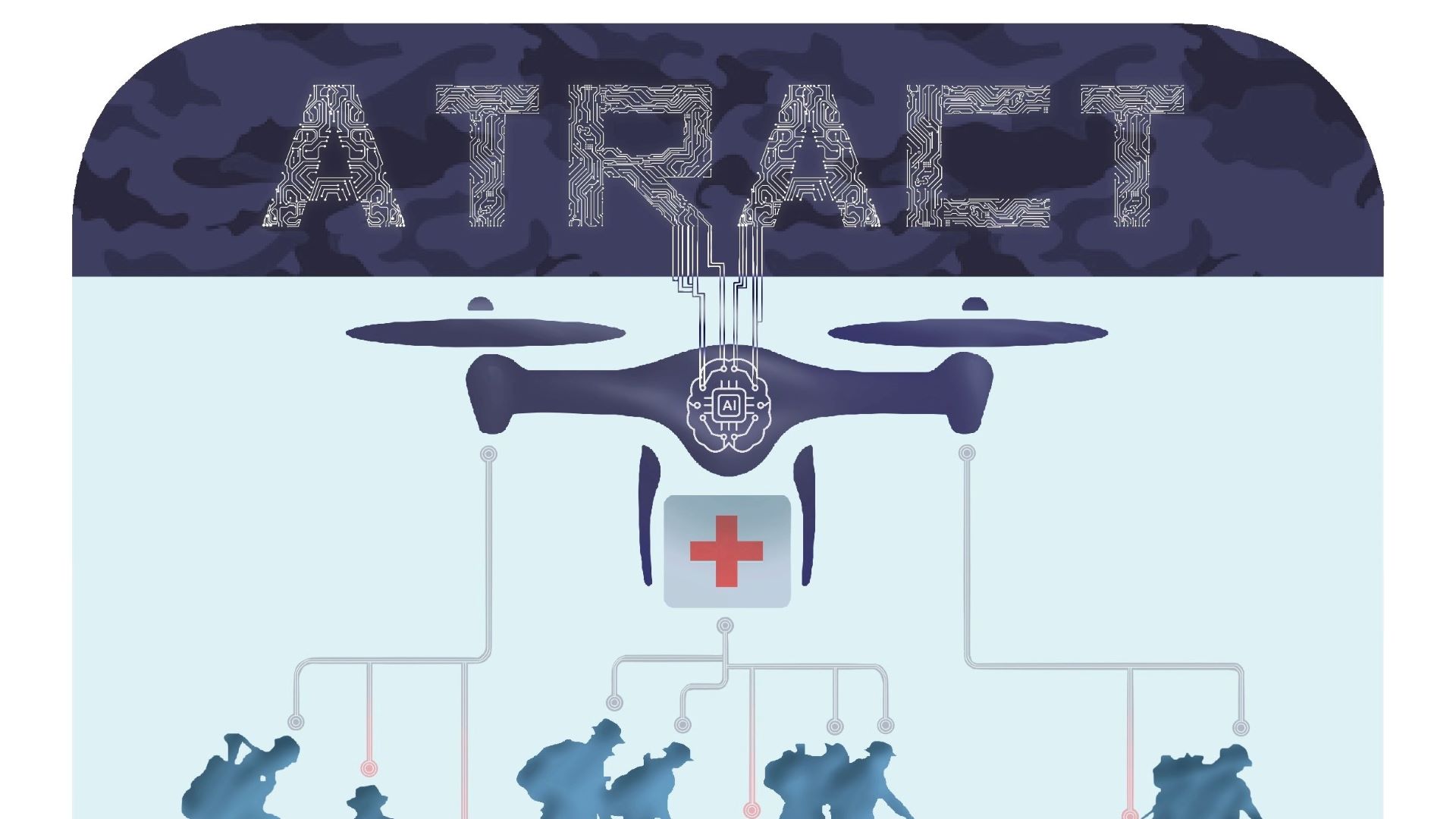Project ATRACT, which stands for A Trustworthy Robotic Autonomous system to support Casualty Triage, will see the development of a flying drone that can assist and speed up triage in the critical post-trauma minutes that shape battlefield survival chances.
Professor of Computer Vision and Artificial Intelligence (AI) Ardhendu Behera said: “While there is much talk of using AI and autonomous platforms as weapons, this project does the opposite, helping to save lives, protect soldiers and make war less deadly.
“When completed ATRACT will be a reliable drone-driven autonomous system that can help frontline medics in decision-making in the ‘platinum ten minutes’ following trauma.”

The project is being developed in reaction to changes to the modern battlefield that make traditional evacuation by helicopter impossible.
Explaining the changes to modern warfare that make this technology necessary Professor Behera said: “In the Vietnam War, American evacuation helicopters transformed soldier survivability with the emergence of the ‘Golden Hour’, using superior air power to evacuate casualties quickly and effectively.
“However, as seen in Ukraine the use of low-cost, accurate, shoulder-launched ground-to-air missiles has significantly disrupted helicopter operations, presenting a heightened risk to casualty evacuation operations.
“Moreover, frontline army medics are often required to monitor multiple casualties and prioritise them based on the severity of injuries. There is an urgent unmet need for enhancing casualty survival in a warzone where conventional helicopter evacuations simply aren’t possible.”
Edge Hill University is leading Project ATRACT with support from Loughborough University, University of Brighton, and University of Portsmouth. It is funded by the Engineering and Physical Science Research Council (EPSRC), part of UK Research and Innovation, which has provided over £850,000 and will conclude in 2026.
The project will focus on four main objectives that all represent major innovations in the use of AI and RAS helping to advance a wide range of technologies while remaining part of the same project.
“Our previous studies of AI used for healthcare and autonomous vehicles applications revealed the gaps in the knowledge and understanding,” Professor Behera added.
“In this interdisciplinary project, a truly transformative approach will be taken to bring the UK to the forefront of research on trustworthy AI and RAS technologies for national security and defence. At the same time, it will also bring about potential commercial opportunities, as well as social and economic benefits.”
Dr Khizer Saeed from the University of Brighton’s School of Architecture, Technology and Engineering said: “Each of the elements of the project represents a significant development in drone technology and artificial intelligence that will enhance research and development for a huge range of other projects around the world. We hope to one day see drones like ATRACT helping in natural disasters and terrorist attacks where saving time is key to saving lives.”
The first stage is to develop advanced sensors so that ATRACT can accurately search for injured soldiers using visual and thermal imaging data while still manoeuvring over and around difficult terrain.
The second and third objectives are focussed on the data ATRACT collects. The research team will combine advanced multimodal AI sensing and state-of-the-art algorithms to detect the location of frontline soldiers and provide real-time monitoring of soldiers’ injury severity and their vital signs for effective triage management.
Finally, ATRACT will have to provide real-time casualty information to a medical team as it approaches, enabling more effective crew resource management and casualty prioritisation, thereby reducing time on the ground, and minimising the risk of the frontline medics being attacked.
The research team will also incorporate the laws of war, medical ethical principles and UK Ministry of Defence AI and Autonomy ethical principles at every stage of the project.
Co-investigator Professor of Applied Ethics Peter Lee from the University of Portsmouth added: “From design to completion, a unique aspect of the ATRACT project is the creation and use of a bespoke ethical and legal checklist at every stage. AI provides new ethical challenges and we are determined that they are addressed throughout and not just tagged on as an afterthought.”
To discover more about Edge Hill University’s courses, please visit ehu.ac.uk/study.
March 21, 2023



